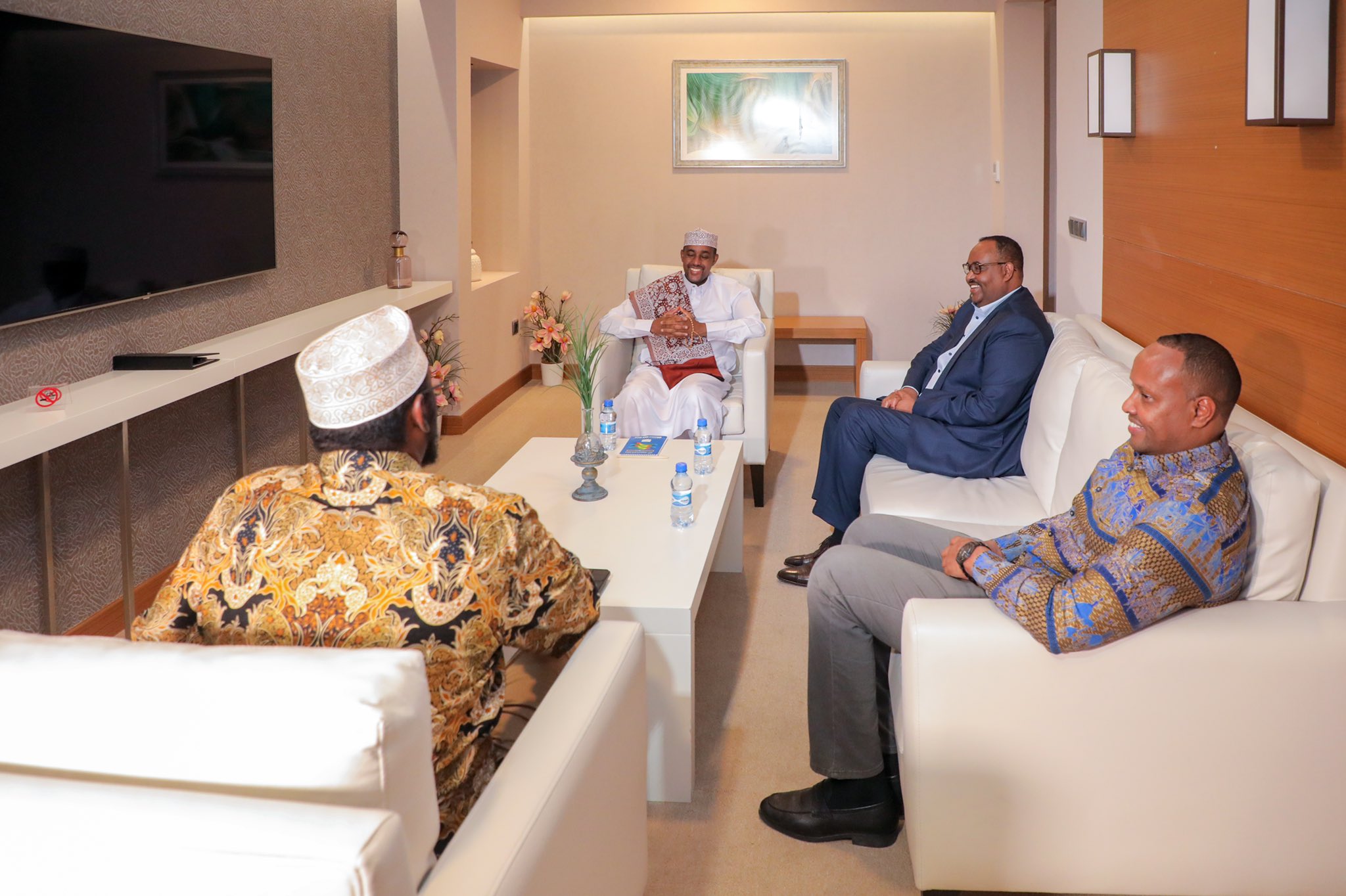NCC Meeting: Four key issues expected to form the core of talks

By T. Roble
GOOBJOOG NEWS|MOGADISHU: The National Consultative Council (NCC) which brings together the Prime Minister and Federal Member State presidents is expected to meet this week following a Villa Somalia orchestrated obstruction last week that saw the meeting put off.
All the FMS leaders save for South West’s Abdiasis Gareen have arrived in Mogadishu. Jubaland President Ahmed Madobe and his Puntland ally Abdullahi Deni held separate meetings with PM Mohamed Roble and UN head in Somalia James Swan.
Qoorqoor and Lafta Gareen, both Farmaajo allies had distanced themselves from the NCC meeting convened by Roble for December 27 but international pressure especially from the US and UK have pressed them to conform.
The meeting which comes at the height of rising political tensions in Mogadishu and heavily compromised Lower House elections will be seeking to address itself to at least four contentious issues emerging from the elections. The meeting will also be an opportunity for Roble to stamp his foot, authority and respect especially from dissenting FMS leaders and in light of support from the international community.
Election irregularities
The ongoing Lower House elections has been widely criticized for failing to meet even the very basic tenets of a free electoral exercise. The process has been heavily influenced by key Federal Member State presidents and Villa Somalia. The meeting will therefore be deliberating on how to restore confidence in the process
Selection of delegates
One of the issues which have arisen as a point of contention is the place of electoral delegates. To date, none of the SIETs and clans have made public who the electoral delegates are. How they were picked is unknown and so is their identity. Clan elders and civil society representatives are tasked with selecting the clan delegates who in turn elect MPs. However, that process remains shrouded in secrecy adding another veil of opaqueness in the electoral process
Trim the influence of FMS leaders
From the Senate elections to the Lower House process, FMS leaders have virtually controlled the process determining who will make to the list of candidates and how delegates vote. In effect, therefore, those who hold different political views from the FMS leaders never make it to the candidate’s list and subsequently the ballot. The PM has fallen out with Qoorqoor over the election of acting intelligence boss Yasin Farey. Roble will also be seeking to regain his influence and authority in the elections by demanding that FMS leaders ease their grip on the process.
Role and powers of SIETs and FIET/EDRC
The Federal Indirect Elections Team (FIET) have since been reduced into spectators in the ongoing elections as its opposite-SIETs call the shots. As appointees of their respective FGMS presidents, SIETs play by the script and ensure the wishes of their appointing authorities are honoured. Equally, given that they handle the actual elections work at the lowest level, they wield influence on who is elected.
Of note also is that the FIET is currently without a chairman following the removal of Mohamed Irro in late December. Despite his removal, Irro still held on social media accounts of the FIET while the rest of the team had no access. Related to this is the Elections Dispute Resolutions Committee which saw seven of its members including the chairman removed by PM Roble in late December. The EDCR has been widely accused of playing second fiddle to powerful stakeholders in handling electoral disputes. The Committee came under sharp criticism in December for clearing acting intelligence boss Yasin Farey despite widespread irregularities. Before that, the EDCR also okayed the election of Deputy PM Mahdi Guled in November attracting criticism.
The NCC meeting is also expected to set new electoral timelines to bring to a close the process which has been running since July 29.